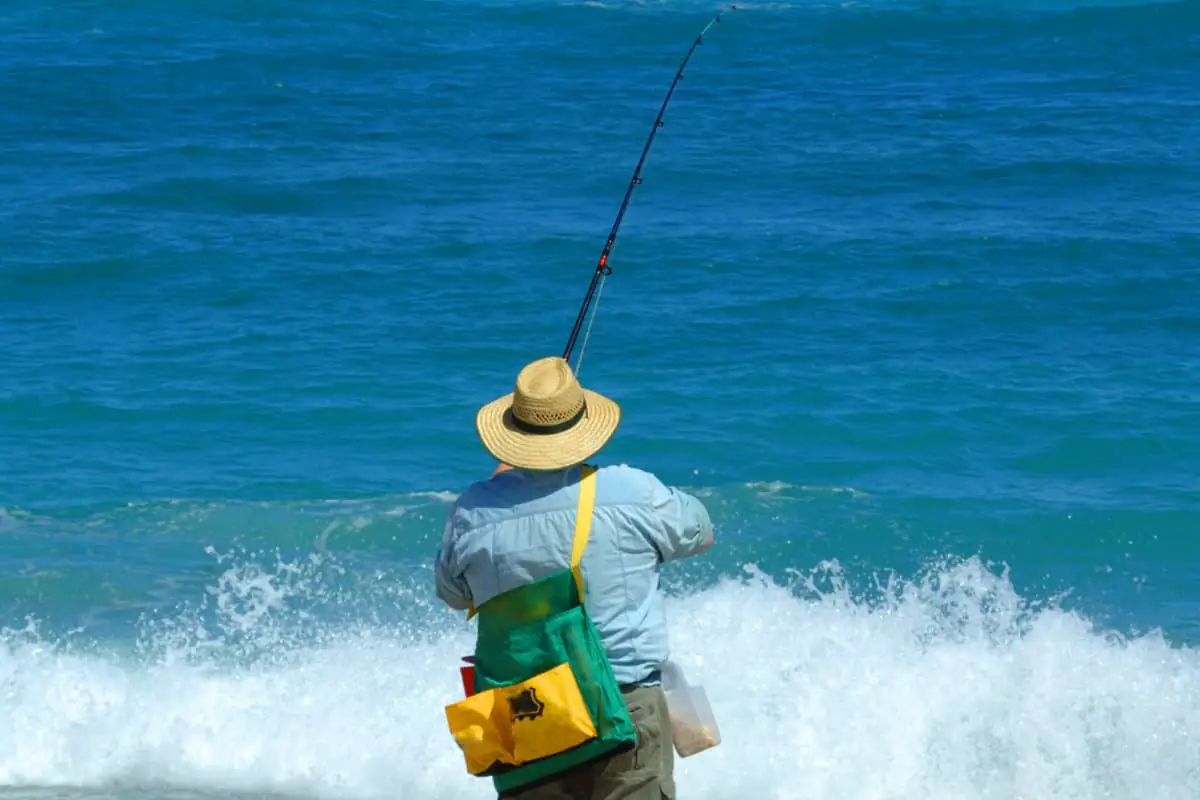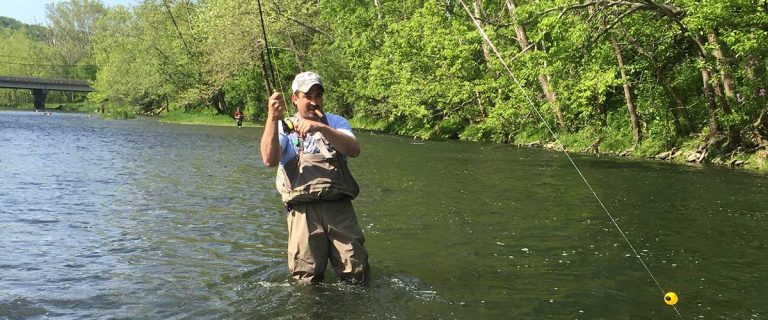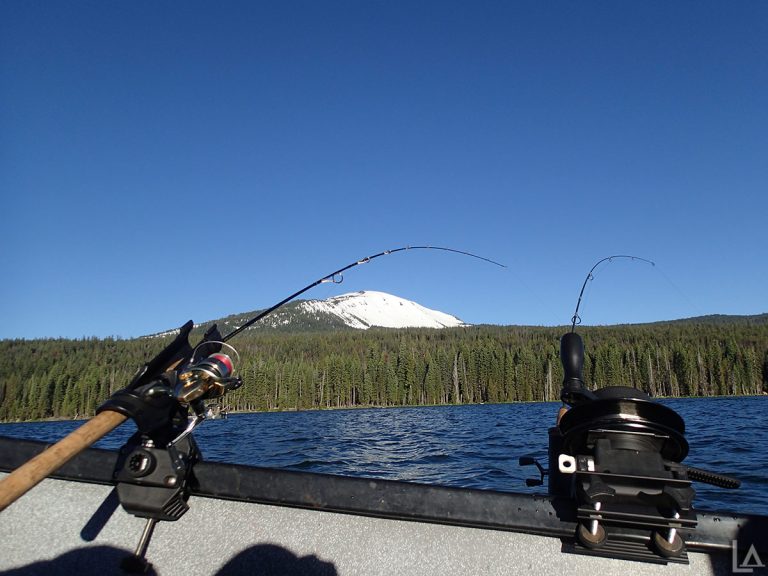Planning a fishing trip to Rhode Island? Before you cast your line, it’s crucial to understand the state’s fishing license requirements. This comprehensive guide covers everything you need to know about Rhode Island fishing licenses, including costs, types, and how to obtain one. Whether you’re a resident or visitor, we’ve got you covered with the most up-to-date information for a hassle-free fishing experience in the Ocean State.
Why You Need a Fishing License in Rhode Island
Before diving into the specifics, it’s essential to understand the importance of fishing licenses in Rhode Island:
- Legal Requirement: Rhode Island law mandates that anyone aged 15 or older must possess a valid fishing license to fish in state waters.
- Conservation Efforts: License fees directly support vital conservation initiatives, including:
- Fisheries management
- Habitat restoration
- Scientific research
- Regulation and Sustainability: Licenses enable the Rhode Island Department of Environmental Management (DEM) to:
- Monitor fishing activities
- Enforce regulations
- Maintain healthy fish populations
- Ensure fair access for all anglers
By purchasing a license, you’re not just complying with the law; you’re actively contributing to the preservation of Rhode Island’s aquatic ecosystems.
Types of Rhode Island Fishing Licenses
Rhode Island offers a variety of fishing license options to accommodate different angling needs, ensuring that both residents and visitors can enjoy the state’s rich aquatic resources. Each license type serves a specific purpose and is designed to promote sustainable fishing practices while supporting conservation efforts.
Freshwater Fishing Licenses
For those looking to fish in Rhode Island’s lakes, rivers, streams, and ponds, a freshwater fishing license is necessary. Here’s a breakdown of the available options:
- Resident Annual License: $21
This license allows Rhode Island residents to fish in freshwater bodies throughout the state for an entire year, providing access to a variety of species such as bass, trout, and pike. - Non-Resident Annual License: $38
Non-residents can purchase this license to enjoy freshwater fishing in Rhode Island. It’s ideal for those who visit the state regularly for fishing trips. - Non-Resident Tourist License (3 consecutive days): $18
This short-term license is perfect for tourists looking to experience Rhode Island’s fishing opportunities without committing to a full year. - Trout Conservation Stamp: $5.50
Required for anyone wishing to catch and keep trout, this stamp supports specific conservation efforts aimed at maintaining healthy trout populations in the state’s waters.
Saltwater Fishing Licenses
Rhode Island’s coastal waters offer abundant saltwater fishing opportunities. The following licenses are available for saltwater fishing:
- Resident Annual License: $7
This low-cost option allows residents to fish in Rhode Island’s marine waters for a full year. - Non-Resident Annual License: $10
Non-residents can also enjoy saltwater fishing with this affordable annual license. - 7-Day License (residents and non-residents): $5
This temporary license is ideal for those planning a short fishing trip along the coast.
Combination Licenses and Specialty Permits
For those who enjoy both hunting and fishing, Rhode Island offers combination licenses:
- Combination Hunting & Fishing License (residents only): $38
This license provides the flexibility to engage in both activities, making it a great option for outdoor enthusiasts. - Resident Trout Conservation Stamp: $5.50
Similar to the non-resident version, this stamp is required for residents wishing to fish for trout. - Non-Resident Trout Conservation Stamp: $5.50
Non-residents must also obtain this stamp to fish for trout in Rhode Island.
Pro Tip: Rhode Island has reciprocal agreements with New York, Connecticut, Massachusetts, and Maine. If you hold a valid saltwater fishing license from these states, you can fish in Rhode Island waters without an additional license. This agreement enhances the fishing experience for anglers traveling between these states, promoting cross-border fishing opportunities.
Exemptions and Discounts
Rhode Island recognizes the importance of making fishing accessible to various groups. Here are the exemptions and discounts available:
- Children under 15: No license required
Young anglers can fish without a license, encouraging families to introduce children to the sport. - Rhode Island residents over 65: Free permanent license available
Seniors can enjoy fishing without the financial burden of a license fee, promoting continued engagement in outdoor activities. - Disabled veterans (100% disability rating): Free permanent license
This exemption honors those who have served in the military, allowing them to fish without the cost of a license. - Active military personnel stationed in Rhode Island: Eligible for resident license fees
Active duty members can obtain licenses at resident rates, supporting their recreational needs while serving in the state.
Importance of Fishing Licenses
Acquiring a fishing license is not merely a legal requirement; it plays a critical role in the conservation and management of Rhode Island’s aquatic ecosystems. The fees collected from fishing licenses are allocated to various conservation programs, including:
- Habitat Protection: Ensuring that aquatic habitats are preserved and restored.
- Fish Stocking Programs: Supporting the replenishment of fish populations in state waters.
- Research and Monitoring: Funding scientific studies that inform sustainable fishing practices and regulations.
According to the Rhode Island Department of Environmental Management, the fishing industry significantly contributes to the state’s economy, with over 2.7 million recreational fishing trips taken in 2022 alone, generating substantial economic activity and supporting local businesses.

How to Purchase a Rhode Island Fishing License
Obtaining a fishing license in Rhode Island is a straightforward process, thanks to the state’s convenient online platform and authorized in-person vendors. Whether you prefer the ease of digital transactions or the personal touch of visiting a local shop, there are multiple options to suit your preferences.
Online Licensing Process
The Rhode Island Outdoors (RIO) portal, operated by the Department of Environmental Management (DEM), offers a user-friendly online platform for purchasing fishing licenses. This method is particularly popular among anglers who value convenience and flexibility.
To obtain your license online, simply follow these steps:
- Visit the RIO website at rio.ri.gov and create an account or log in if you’re a returning user.
- Select the type of license you require, whether it’s a freshwater, saltwater, or combination license.
- Provide the necessary personal information, such as your name, address, and date of birth.
- Choose your preferred payment method, which may include Visa, Mastercard, American Express, or Discover.
- Complete the transaction securely and receive your license immediately.
Upon completing your first online purchase, you’ll be assigned a unique Rhode Island Hunting and Fishing ID (RIHFID) number. This ID serves as your personal identifier for future transactions, allowing you to quickly access your account, reprint lost licenses, or renew your permit when the time comes.
In-Person Licensing Options
For those who prefer a more personal approach or require assistance, Rhode Island offers in-person licensing options at various authorized vendors throughout the state. These include:
- Local bait and tackle shops
- Sporting goods stores
- Municipal offices
- The DEM’s Boating Licensing & Registration Office in Providence
When purchasing your license in person, you’ll need to provide the same personal information as required for the online process, such as your name, address, and date of birth. Acceptable forms of identification include a driver’s license, military ID, or passport.
It’s important to note that when purchasing a license from an authorized vendor, an additional Enhanced Access Fee (EAF) may be charged. This fee is $2 per license and $0.50 per permit for residents, while non-residents are subject to a $3 per license and $1 per permit fee. However, the EAF does not apply to recreational saltwater fishing licenses.
Required Documentation
To complete the licensing process, whether online or in person, you’ll need to provide valid identification. Acceptable forms of ID include:
- A current driver’s license for Rhode Island residents
- Military identification for active-duty personnel stationed in Rhode Island
- A passport and valid visa for foreign nationals
Having the necessary documentation on hand before beginning the application process will ensure a smooth and efficient transaction.
Licensing Validity and Expiration
Rhode Island fishing licenses are valid for a specific period, depending on the type of license purchased:
- Annual licenses are valid until December 31st of the year they were issued.
- 7-Day licenses are valid for 7 consecutive days starting from the activation date.
- Trout Conservation Stamps expire on the last day of February.
It’s crucial to be aware of your license’s expiration date to ensure you remain compliant with Rhode Island’s fishing regulations.
By leveraging the convenience of online licensing, the personal touch of in-person vendors, and the flexibility of various license types, Rhode Island makes it easy for anglers to obtain the necessary permits to enjoy the state’s abundant fishing opportunities. Remember to always carry your license with you while fishing and be prepared to present it to authorities upon request.
Conclusion
Understanding the various fishing license options available in Rhode Island is crucial for both residents and visitors. By obtaining the appropriate license, anglers not only comply with state regulations but also contribute to the preservation and management of the state’s valuable aquatic resources. Whether you’re casting a line in freshwater lakes or saltwater shores, having the right license ensures a rewarding and responsible fishing experience. For more information, visit the Rhode Island Department of Environmental Management and explore the wealth of fishing opportunities the Ocean State has to offer.
Can I fish without a license in Rhode Island?
Only children under 15 and anglers over 65 who are Rhode Island residents can fish without a license. All other anglers must obtain the appropriate license for their fishing activities.
How long is my Rhode Island fishing license valid?
Annual licenses are valid from the date of purchase until December 31 of the same year. Temporary licenses, such as the 7-day saltwater permit or the 3-day tourist freshwater license, are valid for the specified number of consecutive days from the date of purchase.
Do I need a separate license for each type of fishing?
Yes, Rhode Island requires separate licenses for freshwater and saltwater fishing. If you plan to fish in both types of waters, you’ll need to obtain the appropriate license for each.
What happens if I lose my fishing license?
If you purchased your license online through the RIO portal, you can easily reprint it by logging into your account. If you obtained your license in person or by mail, contact the DEM or the vendor where you purchased the license for a replacement.
Are there any free fishing days in Rhode Island?
Currently, Rhode Island does not offer any free fishing days. However, the state does provide free fishing events and clinics throughout the year to promote the sport and educate anglers. Check the DEM website for upcoming events.







